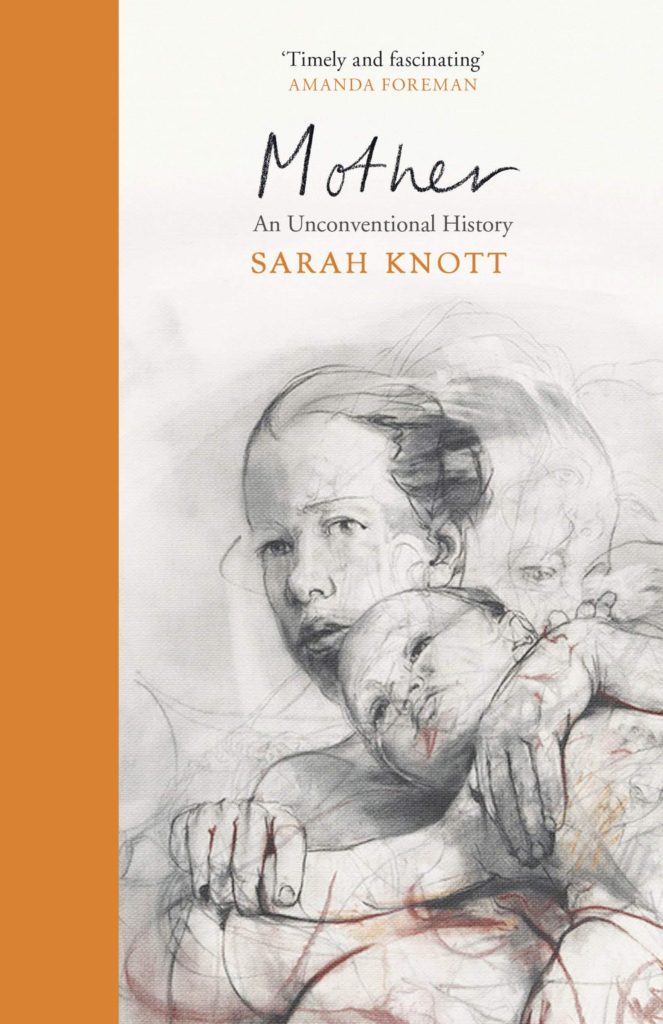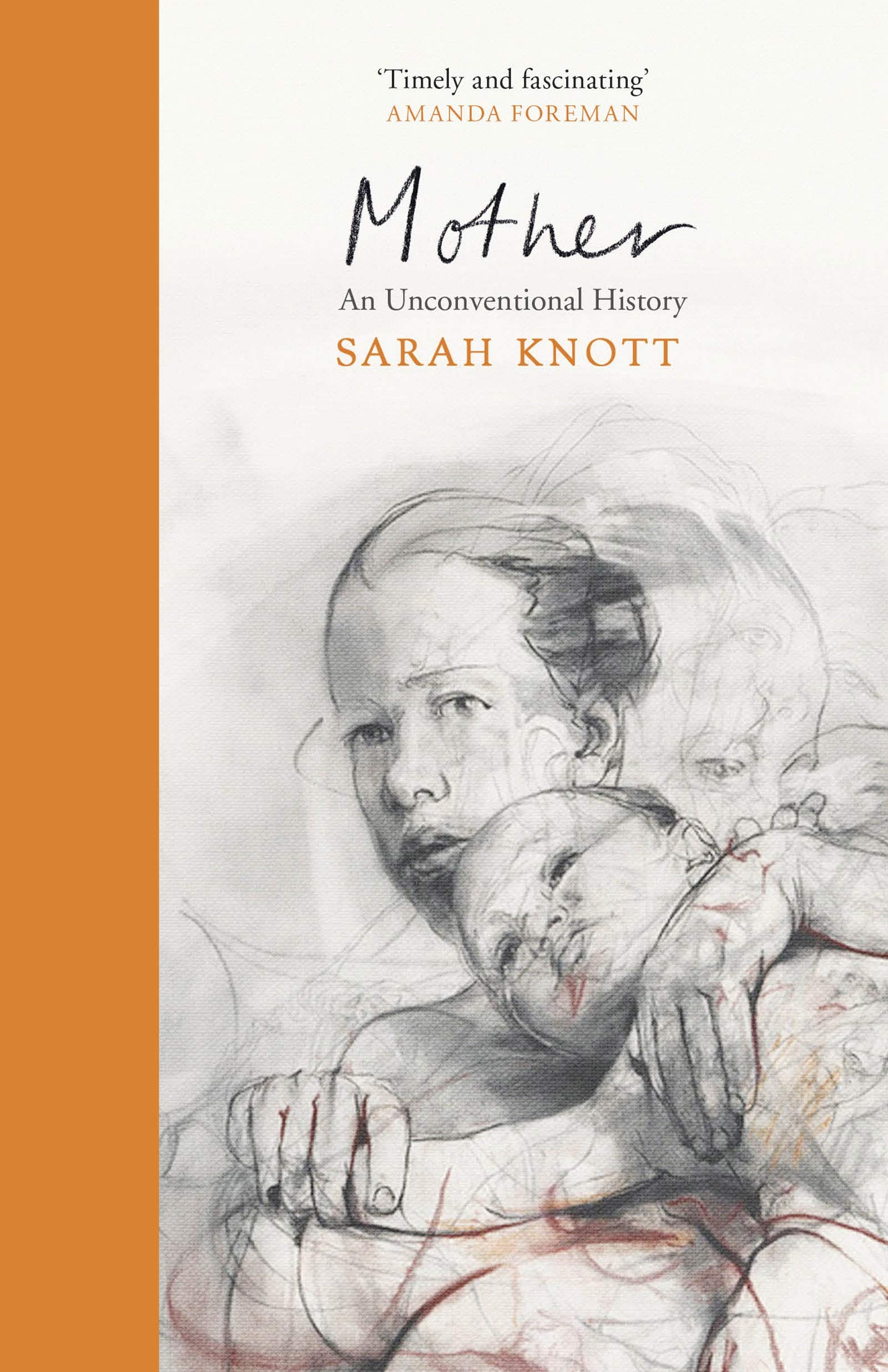
Sarah Knott’s book, Mother: An Unconventional History, is an autobiographical, semi-academic account of the history of mothering in North America and Britain. In this key contribution to the literature on the history of maternity, Knott takes one through fascinating stories of women, including herself, navigating the seemingly mundane spaces of becoming and being a mother. Knott has a sustained interest in the study of histories residing in intimate spaces, focussing on localised experiences of gender and culture within broader historical narratives of social revolution, and her innovative approach to feminist history comes to fore in this book’s choice of subject and the method and style of writing.
The book’s central project is to offer a history of mothering – an activity that has been continuously present and recurring and yet rarely documented or debated within mainstream history. Knott treats mothering as beyond a social institution that women inhabit by biological and reproductive virtue. Instead, she makes a case for treating mothering as a verb, navigating the space of mothering in her writing as a moving and changing landscape, with stages that go back and forth as they intertwine with the personal and political lives of women. The cover of the hardcover jacket of the 2019 Penguin edition carries Jenny Saville’s charcoal painting of a woman holding an infant. Knott describes this as capturing the “living mother of a living child”, the open and wild lines that hold the woman and the infant together, suggesting how “mothering is made and remade” (p. xv).
It is the dynamic journey of mothering along which the book is structured, each chapter centered around a stage of mothering. Throughout, it is a seamless mix of personal and social narrations of mothering, an interspersion of archives and anecdotes, shifting from stories of the 16th century to of Knott’s tales of her own pregnancies. The first half of the book takes us through the choices, tensions, and confusions that go in the making of a pregnant woman: contemplating a kid and a family; sex and intercourse; waiting, miscarrying, and conceiving; the period of gestation; the baby kicking, a full womb; and finally, the birthing and the becoming of a mother. The second half of the book then takes us through the ‘mothering as verb’, presenting multi-sited historiography of how mothering is acted out by women: during nights and in the morning; in cleaning, cooking, and caring; in feeding; in worrying; at home, at the clinic, and at work.
A recurring theme in the book is thus Knott’s exploration of mothering with different ideas of time, individually and historically. Borrowing from Lisa Baraitser (p. 264), her specific argument is how mothering interrupts all other modalities of time – interrupted letters; interrupted diary entries; interrupted interviews; interrupted working life – interrupted mornings, afternoons, evening and nights – and an interrupted history of mothering, gaps of which she is attempting to fill in this book. The most pressing theme of this book is that mothering halts time in such a way that it pauses while the rest of the history moves on. The pregnant pause in history around maternity that Knott is addressing in this book is somewhat emergent from the very pause-inducing nature of mothering.
Knott necessitates in this book the historicisation of the various contemporary debates that populate the journeys of becoming and being a mother: the relationship between sex and production; choice and politics around having/not having a child; experiences of being a working mother versus a stay-at-home mother. Intersecting these with contemporary sociologies of gender, sexuality, and family, she is pulling out mothering of its rosy, blissful and life-altering popular persona, rooting it in everyday politics and conversations, visibilizing the nexus of relationships, agencies, power-dynamics and moral politics that mothers have found themselves in century after century. While by way of her subject matter and regional expertise, Knott’s focus is on British and North American history. She remains conscious of the extremely plural experiences of mothering – “specific to time and space and situation” (p. 259). Yet, at times, the book often resorts to a tone of presenting a global and collective neglect of mothering, the recognition of how different mothers remain differently unaccounted for in history not empathic enough.
The method and writing of the book are anecdotal and in first-person. Her own notes on method at the end of the book are useful in understanding the role of anecdotes in historicising maternity: it’s central to feminist history and female historians; it invokes the fragmented and neglected state of mothering in global history; and it brings fore the anecdotal nature of mothering itself which is full of intimate, accumulated and interrupted moments. The other component, a first-person writing, is to write of mothering as a verb – in action, which is deeply connected to importing significance to acts and practices of mothering within broader historical studies. For a lay-reader, it also adds to vast historical account tangibility, emotion, and compassion.
The ideas of mothering as a deeply political embodied labour are key undertones of Knott’s writing but jump out most explicitly and poignantly when you are least expecting it. Like most of her work, this book comes as a valuable resource for those interested in politics of reproduction, mothering and care-work, lending questions of bodily autonomy, reproductive choice and justice, sex and procreation, and family planning a nuanced historical narration. In the departing lines of the book, even as Knott’s baby is no longer new, he beckons his mother into “our morning” (p. 260) – may be to middle and late mothering, themes which Knott is exploring in her future projects.
***
Arushi Sahay has recently graduated from the London School of Economics and Political Science (LSE) with an MSc in Sociology and is currently working with Ahmedabad University’s School of Arts and Sciences.
